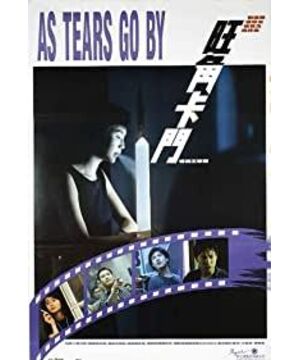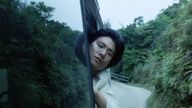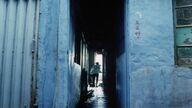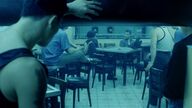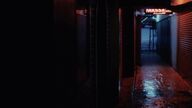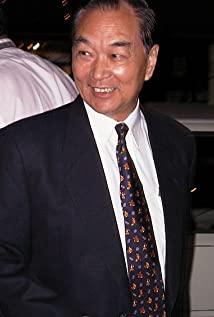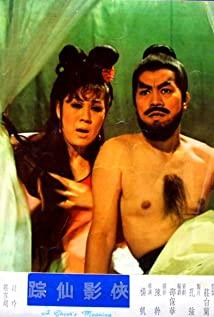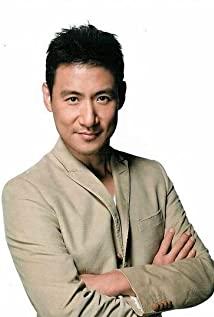The story is about the underworld boss Andy (Andy Lau)'s brother, Fly (Jacky Cheung), who frequently gets into trouble, but every time, Hua has to settle for him. It was not until Hua had a relationship with A'e (Maggie Cheung) who came from the mainland that he was determined to fade out of the arena, but at this time, You took over the underworld task of assassinating the tainted witness in order to save face. This is clearly the road of no return. In the end, the mission was finally completed, but Hua and You both died.
The title of the film is grafted, which will make the audience inexplicable. However, it is not impossible to find a way between the two. Mong Kok in Hong Kong is the kind of place where prostitutes and gangsters mingle. Carmen is an opera, and the heroine Carmen is a symbol of women who are uninhibited on the surface but are still pure and innocent. In such a chaotic and dark living space in Mong Kok, a kind of warm and primitive love like Carmen slowly breeds. Wong Kar-wai originally used the title of "Hot-Blood Boy". Although it was very common, it was easy to understand, unlike this one, which was so unbelievable.
Liu Weiqiang's cinematography is really strong. The tones of the film Carmen Mong Kok are very rich, coupled with the delicate lighting, the sense of layering is very strong. In Mong Kok Carmen, I remember that there are two very beautiful reds used. One is Maggie Cheung sitting on a chair, holding her cheeks, looking up at the sky with a bewildered expression. The camera then begins panning at medium speed, revealing a large red tablecloth adorned with star-like flowers. The panning effect is pretty indescribable.
The second is a scene where Maggie Cheung bids farewell to Andy Lau. The scene is a bus stop. The car starts up, and then there's a dizzying red moving across the screen. The red is apparently smeared on the bus body. However, pull out a perspective first, knowing that this red is only a small part of the body. However, Liu Weiqiang took this piece of fame alone as Andy Lau's final departure. From a visual aesthetic point of view, it is like a rapid vignetting.
For the light ice blue tone, Liu Weiqiang used overexposure or underexposure. At first, he thought he was using a filter. But no matter what technique is used, the effect is particularly comfortable and visually pleasing to the eye. One is the first time Andy Lau wielded a knife to avenge Jacky Cheung. On the dark night street, the camera followed Andy Lau into the big gear. At this time, the color tone had completely changed to light ice blue. Andy Lau slashed with a knife and used a hand shake. In the light icy blue tone, the rapid shaking of the figure and the shadow of the knife made the effect look extremely sharp. It is enough to compare with the hand-cranked martial arts scene in "Evil in the East and the Poison in the West" in which Du Kefeng was in the mirror. The most beautiful scene is that Andy Lau smashed the hot pot, and the yellow flames rose in the light ice blue tone in an instant.
The other is Andy Lau and Maggie Cheung kissing in the phone booth, running to the phone booth and using the hand shake, and the kiss scene uses a light ice blue gradient. Before the MV shooter, Andy Lau and Maggie Cheung kissed, the background music used Lin Yilian's "Passion". This is the climax of the emotional scene in this movie, especially the scene where the two kiss each other, plus this famous love song, it is really a climax of the interpretation, overflowing with passion! The soundtrack of this film is very cold, with a feeling of emptiness, like a light ice blue tone, which is in perfect harmony with the light blue image used by Liu Weiqiang!
Jacky Cheung played the black fly, and followed Andy Lau played by Andy in Mong Kok all day long. Just as Ren Dahua said to Gu Tianle in "Underworld": "Young and Dangerous Boys can't use their brains, they are young and Dangerous all their lives." It's just that he doesn't know where his tomorrow is, and he has no purpose in life. Just as Andy said to Maggie Cheung's A'e in the film: "People like us have no tomorrow."
This is very similar to the ecology and mentality of urban middle- and low-level youth reflected in Wang Shuo's early and middle novels. Tomorrow, if you find tomorrow, you won't know and won't be able to fight for it. Wang Shuo used the cynicism of the ruffian to express his inner anger. Of course, Wong Kar-wai can never be Wang Shuo, but no matter Hong Kong or Beijing, people always have something in common.
When Wu Fei got into trouble, Andy always took the lead and carried it for him. Wu Fei was cut by someone, and Andy cut it back overnight, even if he was injured. In order to prepare a wedding wine for his younger brother, Wu Fei borrowed a usury loan from another boss (played by Wan Ziliang).
"Don't be so nice to me, okay?" Wu Fei felt that he owed too much to this little boss, and at the same time he felt that he was useless. The opportunity is still here. The club wants to kill a tainted witness and pay a very high price. Wu Fei felt that this was an opportunity to gain both fame and fortune. As for life, it was only a price.
In the last scene, Wu Fei killed the stained witness at the gate of the police station. Liu Weiqiang used panning and slow motion, and the effect was extremely shocking. When Wu Fei drew his gun and went forward to shoot, the photographer carried it on his shoulders, and it felt like he was in the scene. However, Wu Fei failed to complete the task in the end and was shot dead by the police at the gate of the police station. Andy, who arrived immediately, was stunned by this scene, and even shot the tainted witness three times, but he was also shot in the head.
The last shot was very impressive. Andy Lau fell to the ground and kept pulling it out. His eyes were wide open, reminding me of a novel "Never Rest Your Eyes" by Hai Yan.
PS: There must be directors who wear sunglasses, but like Wong Kar-wai, they show people with a pair of sunglasses regardless of any public occasion, not to mention in the Hong Kong film industry, even those non-mainstream directors from Europe and the United States who are deviant and deviant will not do the same. Well, this is a brand. As for when Wong Kar-wai started wearing sunglasses without leaving his body, it is unknown. I roughly speculate that he should have been together with sunglasses since "The True Story of Ah Fei". My reason is that the film "The True Story of Ah Fei" is really difficult to understand. Wong Kar-wai's first movie that started to play post-modern, so this pair of sunglasses is just like his maverick avant-garde movies. A close partner in film career.
The film "Mong Kok Carmen" is Wong Kar Wai's directorial debut, and it is said that he was ordered in danger. "Mong Kok Carmen" is the last traditional style film before Wong Kar-wai's personal style. However, the watershed of the film style is not so clear. Therefore, "Mong Kok Carmen" has more or less, or secretly or explicitly, began to be contaminated Modern air. What is rare is that Wong Kar Wai walks between tradition and post-modernity, not only maintaining a unified style, but also shooting a unique personal style.
View more about As Tears Go By reviews


